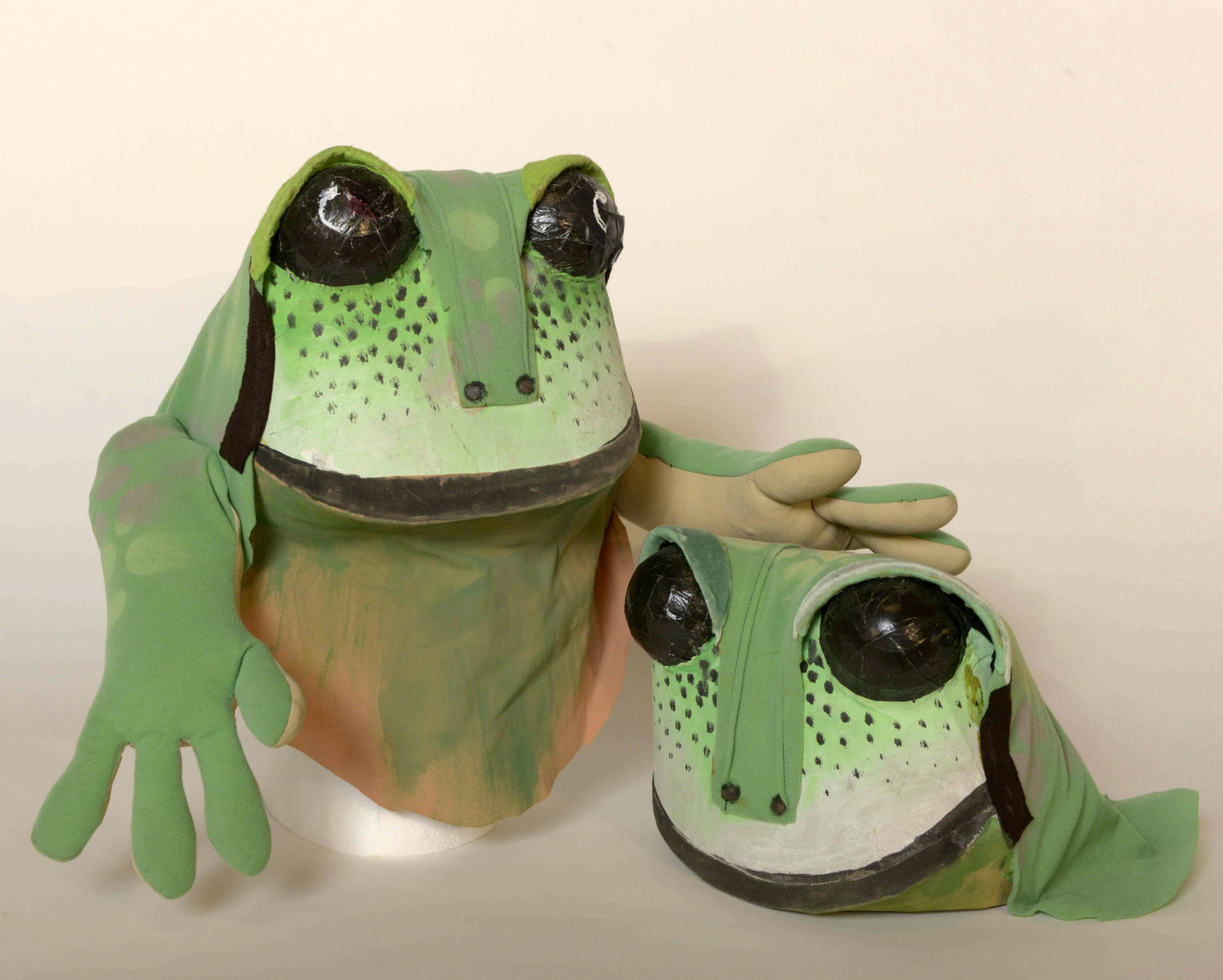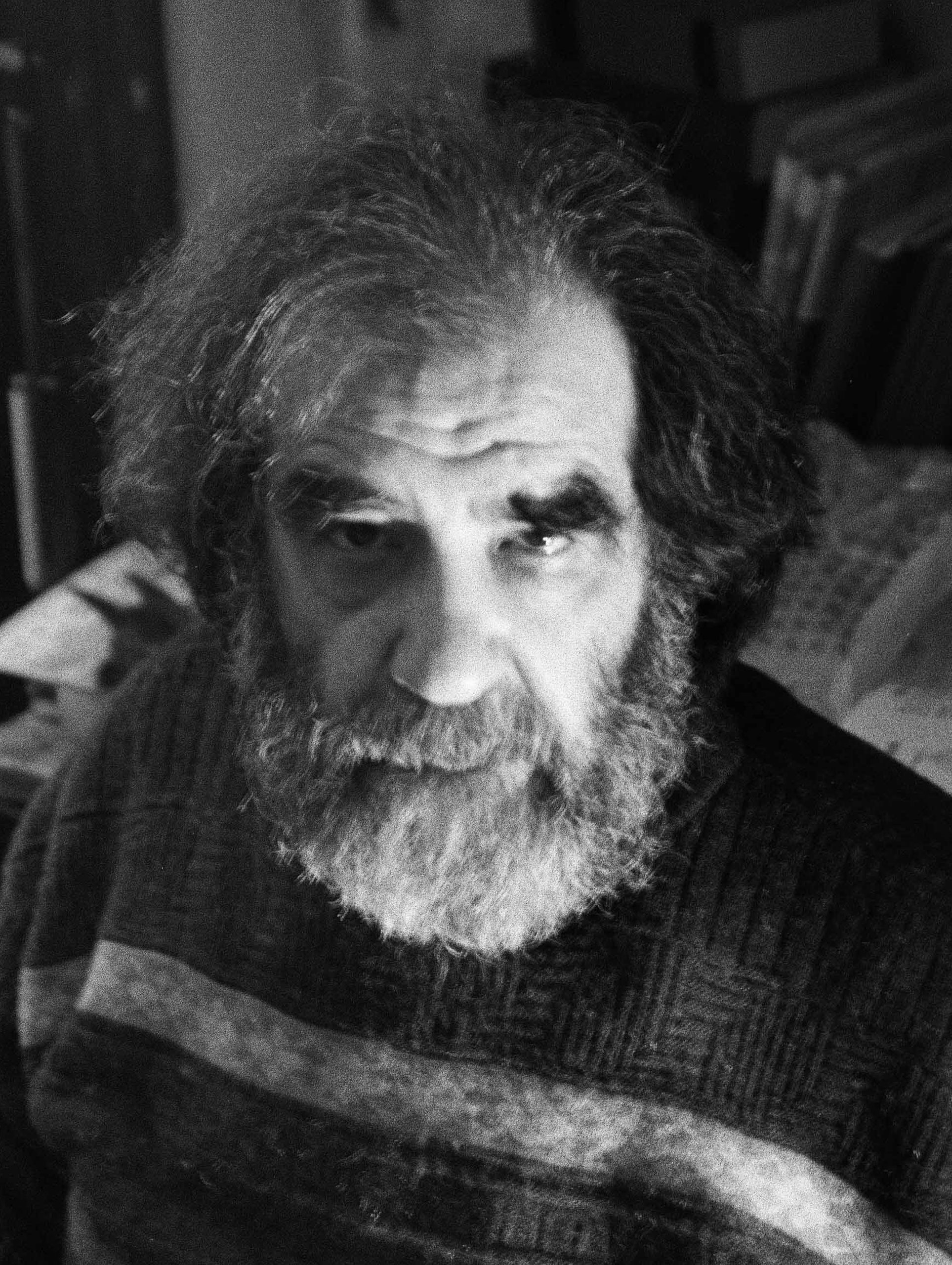
To mark the Fondazione Giorgio Cini’s acquisition of the archive materials belonging to Franco Scaldati and Michele Canzoneri, the Institute of Theatre and Opera has organised a public presentation of the archives, accompanied by an exhibition that will give the audience the opportunity to view the various types of materials they contain. For the occasion, the actor Melino Imparato, Franco Scaldati’s historical collaborator, will perform Il corpo nostro è simile a un giardino (Our Body is Like a Garden): an exploration of the poetry of the Palermo playwright through a selection of pages from his original works and his Shakespearean rewritings. The actor, director and playwright Franco Scaldati (Montelepre, 1943 – Palermo, 2013) wrote a vast number of theatrical texts, most never previously published and kept in the precious archive now donated to the Institute by the artist’s heirs. A leading figure in Italian dramaturgy, Scaldati never worked in the ranks of the official theatre scene, but created plays that focus on actors and their specific characteristics. In 1987, his work Assassina won the Riccione Theatre Prize (under the artistic direction of Franco Quadri); it was the first of a series of awards for Scaldati. In the 1990s, with the Laboratorio Femmine dell’Ombra, he worked in the poorest districts of Palermo. In 2002 the Compagnia Franco Scaldati was founded and is still active today. The playwright continued to work for the company right up to his death in 2013. The figurative artist and set designer Michele Canzoneri (Palermo, 1944) has donated to the Institute of Theatre and Opera some documentary material related to his work as a stage designer. Canzoneri’s designs for opera are particularly interesting and were made for productions such as Dialogues des Carmélites (2011), Maria di Buenos Aires (1999) and Norma (1999, 2000), the winner of the Abbiati Prize awarded by Italian music critics for the best
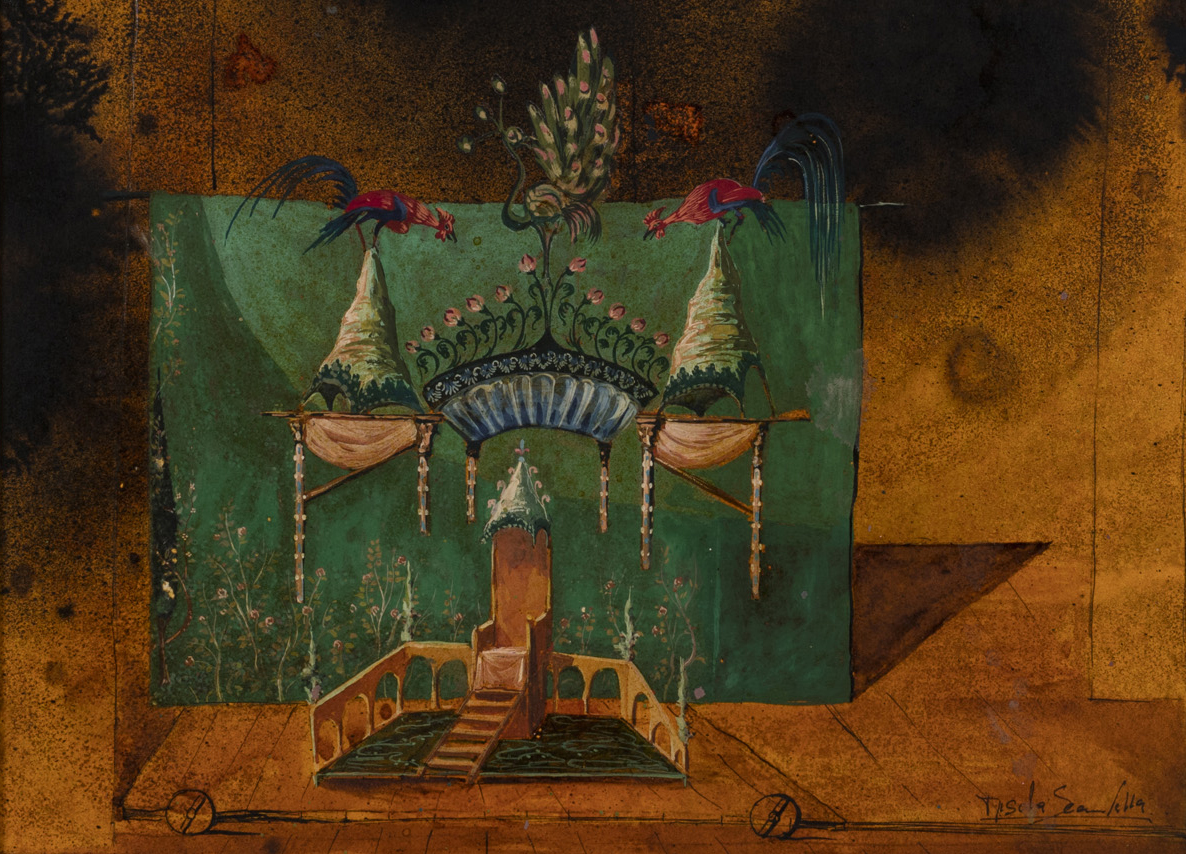
As part of the events to mark the third centenary of the birth of Carlo Gozzi (1720-1806), the Institute of Theatre and Opera is holding an international conference on the celebrated Venetian playwright, in collaboration with Ca’ Foscari University, Venice, University of Verona, the Istituto Internazionale per la Ricerca Teatrale (IIRT) and the Veneto Region (which has co-financed the conference as one of its “major events” in 2020).
Scholars and experts will explore the role of Gozzi in the history of Italian and international theatre and illustrate the rediscovery of numerous manuscripts, which now constitute the largest archive of an 18th-century European playwright; these works will be published in a national edition currently in production.
The international conference will be held online and the video of the sessions will be published on the Fondazione Giorgio Cini Youtube Channel.
Download the programme
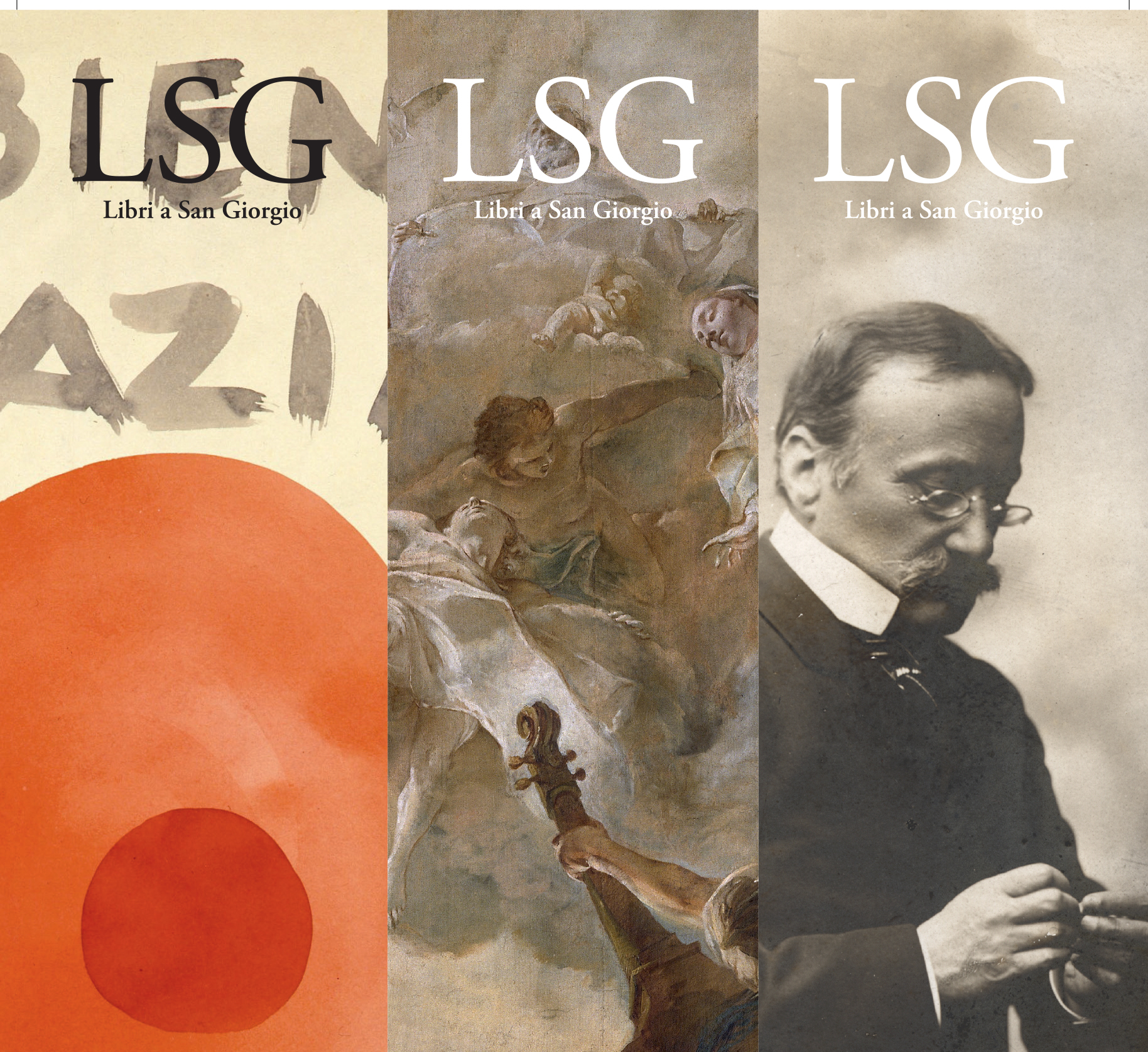
The series of meetings presenting the latest publications by or concerning the Fondazione Cini resumes on 3 March with Lucio Fontana e gli Spaziali. Fonti e documenti per le gallerie Cardazzo, a book edited by Luca Massimo Barbero (Marsilio, Venice, 2019). The main source for this work was the valuable Galleria del Cavallino Archive, entrusted in 2016 by the heirs of the Cardazzo family to the Institute of Art History, which thus enriched its holdings with this extraordinary archive put together by the gallery owner and collector Carlo Cardazzo (1908-1963) and his son Paolo. The archive makes it possible to chart the history of the prestigious Venetian gallery from 1942 to the early 2000s.
The second meeting is postponed to a later date features a book by Bettina Hoffmann, I bassi d’arco di Antonio Vivaldi. Violoncello, contrabbasso e viola da gamba al suo tempo e nelle sue opere, in the series “Studi di musica veneta. Quaderni vivaldiani” (Olschki, Florence, 2020). Divided into three parts, the book deals with: the context for Vivaldi’s compositions for these instruments; their relation with his corpus of instrumental and vocal music; and, lastly, issues concerning performing practice.
Also the appointment with “Ecco il mondo”: Arrigo Boito, il futuro nel passato e il passato nel futuro, edited by Maria Ida Biggi, Emanuele d’Angelo and Michele Girardi (Marsilio, Venice, 2019) is postponed to a later date.
Published as part of the National Committee for the Boito Celebrations, the book sums up the state of research into the work of Arrigo Boito, one of the most influential Italian intellectuals in the late 19th and early 20th centuries. Specialists and scholars have analysed his career and reinterpreted his production as a composer, librettist and avant-garde writer, as well as his activities as a theatre and music critic, translator and stage director. The book not only explores historical research but opens up new prospects for study.
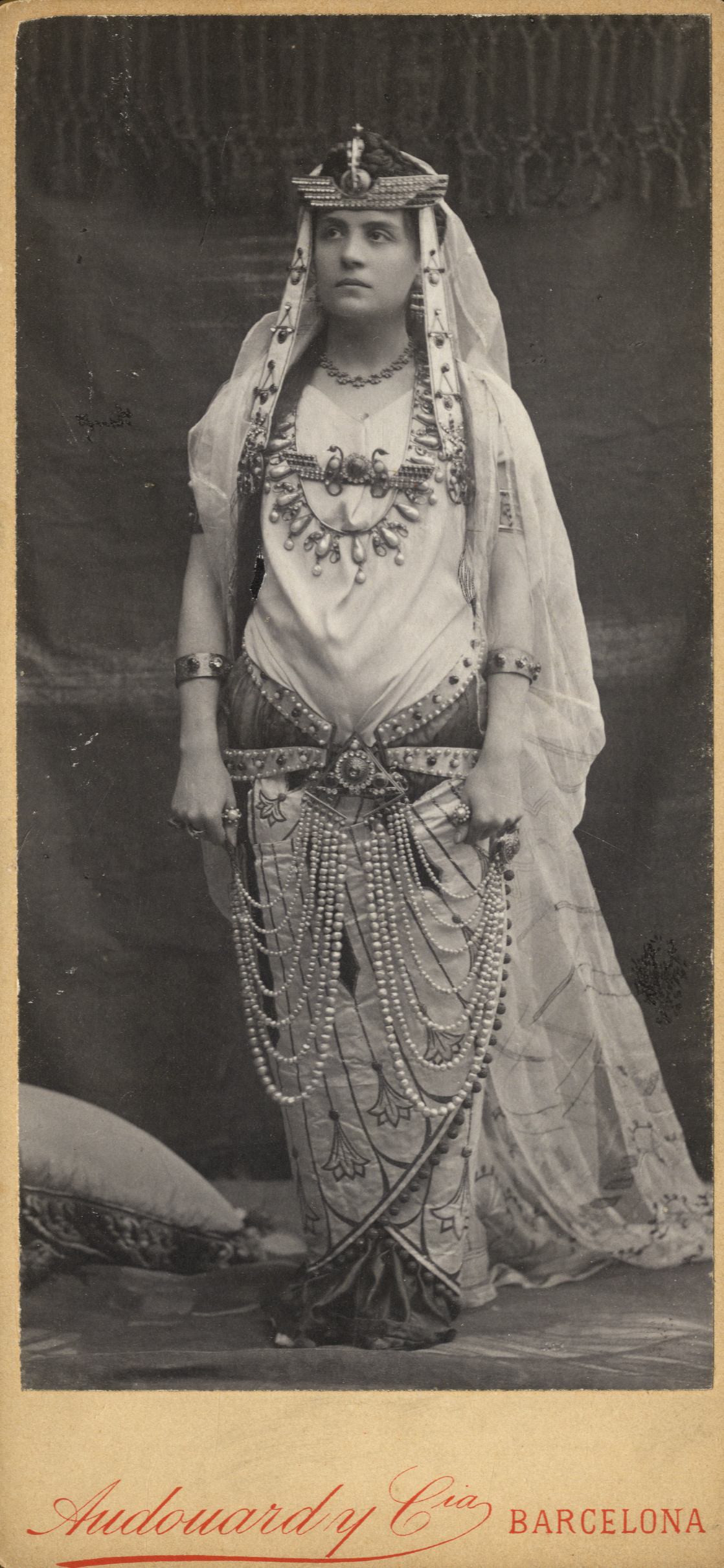
As part of the activities being organised by the National Committee for the Celebrations of the Centenary of the Death of Arrigo Boito (1918-2018), the Institute of Theatre and Opera is staging the exhibition “Creature – Go – Live in Your Ray of Sunlight”. Antonio and Cleopatra by Eleonora Duse and Arrigo Boito.
Curated by Maria Ida Biggi, the exhibition reconstructs the artistic collaboration between the actress and the celebrated writer, composer and intellectual, who was for a long time an important point of reference for the great Diva and her dramatic art.
This exhibition follows on from Eleonora Duse and Arrigo Boito, the 2018 show in which the Institute of Theatre and Opera presented for the first time a selection of papers from the Boito Archive. This year’s exhibition sheds new light on Antonio and Cleopatra, one of the three Shakespearean plays that Boito translated and adapted to Eleonora Duse’s stage presence and style of performance. The fascinating archive material on show includes manuscripts, stage photographs and the correspondence between the actress and the writer discussing the production of Antonio and Cleopatra.
Open to the public since 2011, Eleonora Duse’s Room was created with the aim of providing access for anyone interested in the valuable heritage preserved in the Duse Archive. The exhibition can only be visited after booking by calling 041 2710236 or writing to teatromelodramma@cini.it.
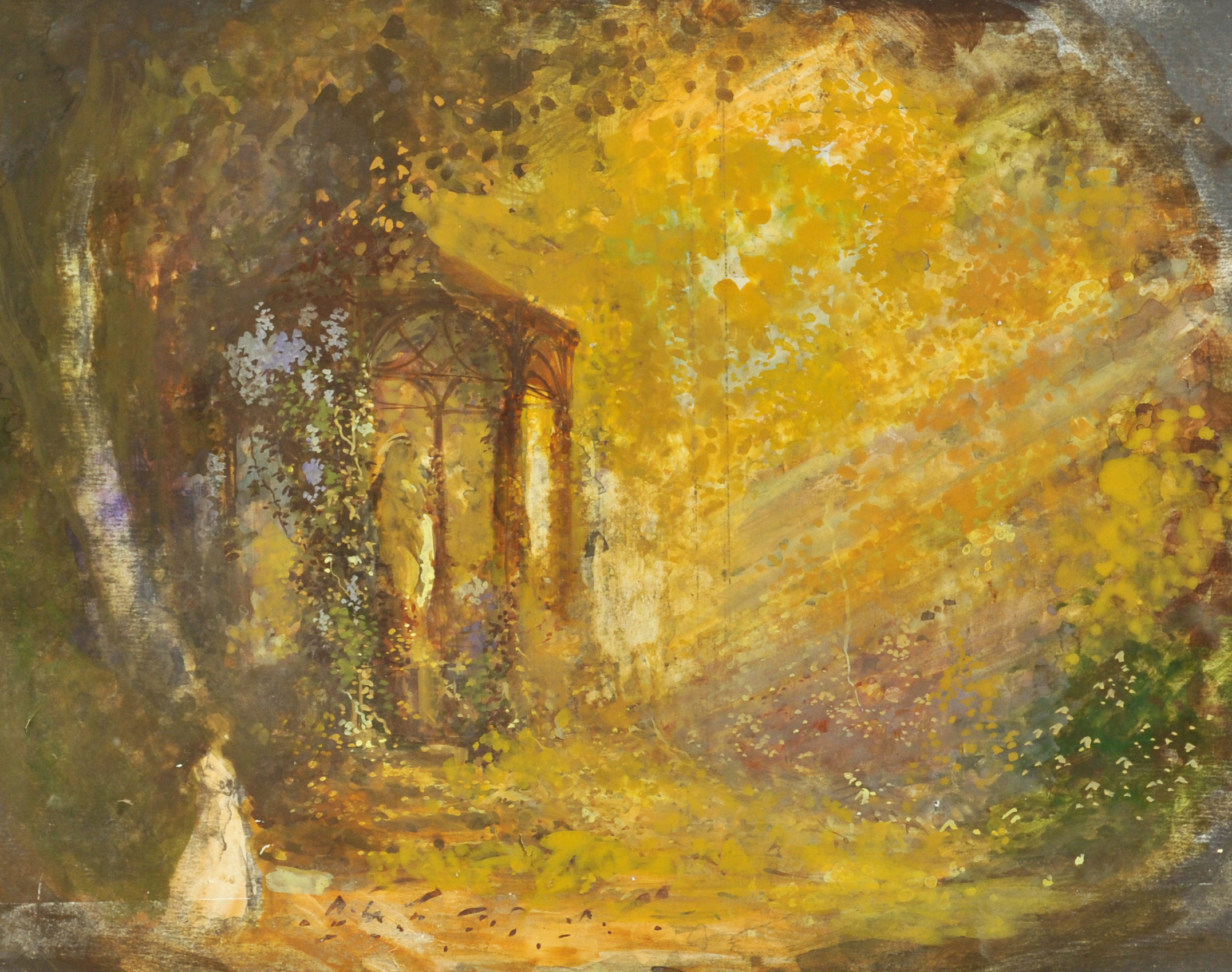
The international conference, Lumière Matière, has been promoted by the research group Lumière de Spectacle (LdS, part of the CEAC Laboratoire at the University of Lille 3), jointly directed by Véronique Perruchon and Cristina Grazioli. Held in collaboration with the Fondazione Giorgio Cini Institute of Theatre and Opera and the University of Padua, the conference sets out to stimulate thinking on the theme of “light as matter”, in its interaction with the various constituent parts of theatre – body, colour, movement, text, sound, space and time – and in its specifically theatrical dimension. Through the exploration of themes such as the dramaturgy of light and its plasticity, one of the aims is to offer an opportunity to describe the means require to develop a discourse in light on stage and to grasp its peculiarities in the context of stage coefficients. Starting from the performing arts, the studies on light will also take in all possible affinities in the fields of physics, the visual arts and aesthetics.
The conference will be held in two stages at different venues: the University of Lille 3 (7-8 November 2019) and the Fondazione Giorgio Cini (16-17 January 2020).
Download tre Program Lille
Download the Program Lumiere Matiere in Venice
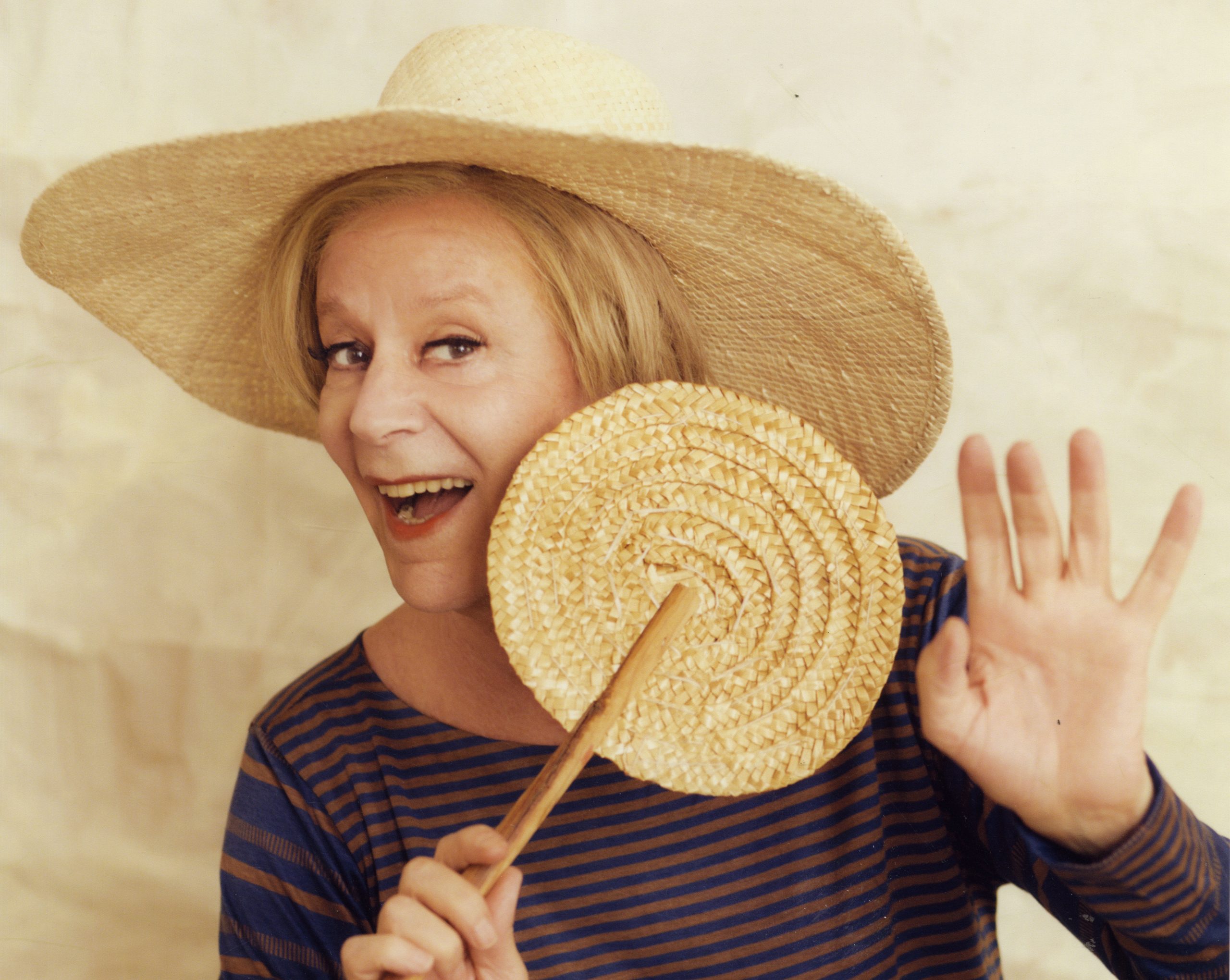
The Institute of Theatre and Opera has announced the acquisition of the personal archive of the versatile Florentine theatre artist Paolo Poli (Florence, May 23, 1929 – Rome, March 25, 2016).
The donation documents the career of the famous actor, singer, stage director and playwright, from plays staged in the early 1950s to the productions of the 2000s. The archive will be officially unveiled at 11.30 am on Thursday 19 September at a public presentation on the Island of San Giorgio Maggiore. The participants will include Paolo Poli’s sister Lucia and his nephew Andrea Farri.
To mark the presentation, a selection of archive items will be exhibited in the Longhena Library, such as stage photographs, playbills, press reviews, director’s notes and autograph scripts.
Among those attending the event will be Milena Vukotic, Rodolfo Di Giammarco and Pino Strabioli. They and other women and men of theatre will bear witness to their experience with Paolo Poli.
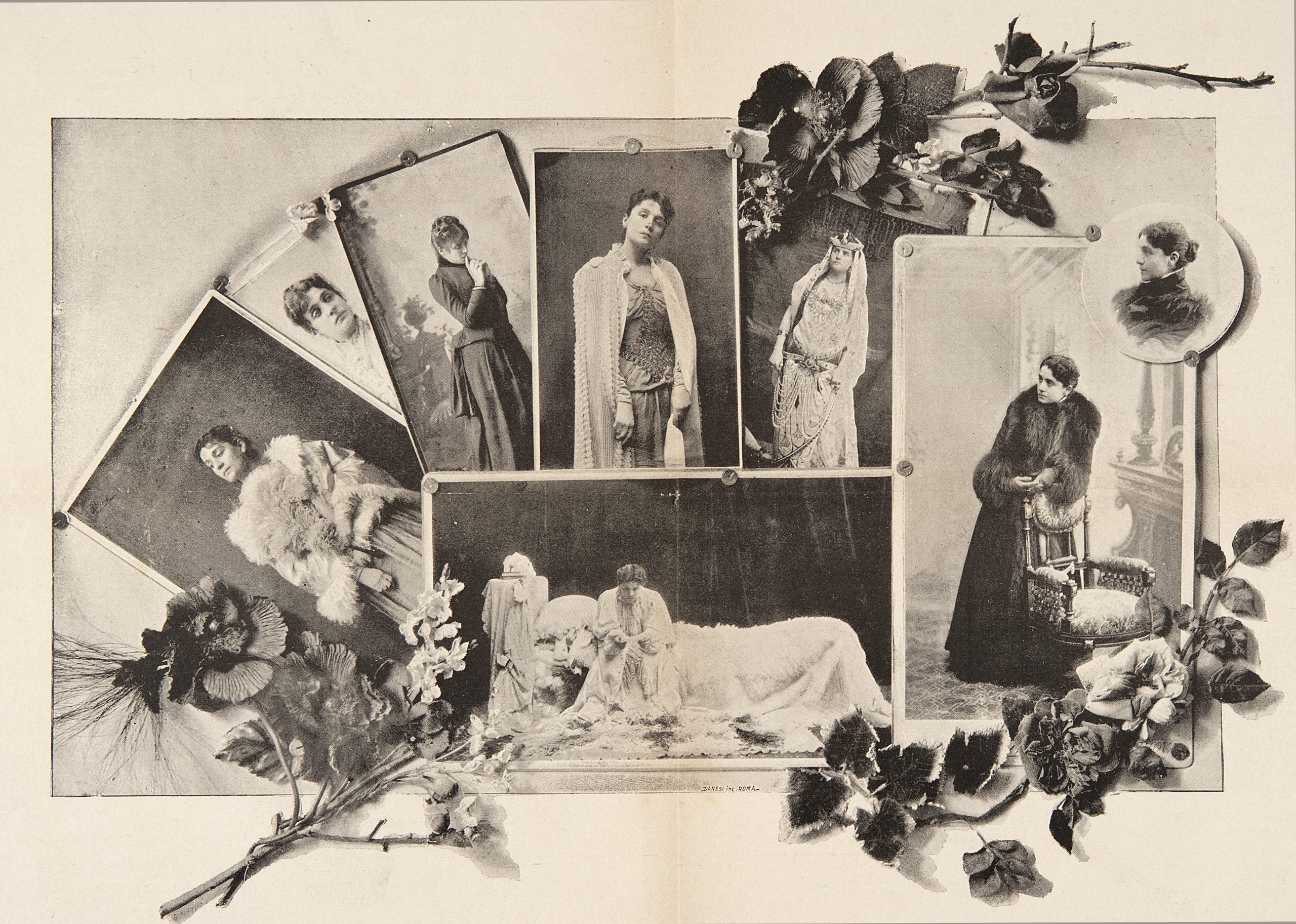
To mark the 180th anniversary of the birth of photography, the Fondazione Giorgio Cini Institute of Theatre and Opera, in collaboration with Fondazione Fratelli Alinari per la Storia della Fotografia, has organised a conference on the relationship between the nascent art of photography and the world of Italian theatre during the Belle Époque.
The aim of the meeting is to study 19th- and early 20th-century photographic production with an emphasis on the kind of “elective affinity” between theatrical practice and photographic practice that strongly characterised the early decades in the history of photography. To understand the main features of this phenomenon and study their repercussions on the theatrical world
and society of the time, the conference will identify the photographers who dealt with the genre and then reconstruct their relationships with the stage actors or companies they portrayed. There will be a special focus on portraits of actresses and the diffusion of this type of photograph in the popular and specialised press. With an advisory committee made up of Maria Ida Biggi, Stefano Mazzoni, Tiziana Serena, Emanuela Sesti and Marianna Zannoni, the conference will be jointly held with the University of Florence and Ca’ Foscari University, Venice, under the patronage of the Istituto Centrale per il Catalogo e la Documentazione (ICCD, Central Institute for Cataloguing and Documentation) and the Società Italiana per lo Studio della Fotografia (SISF, Italian Society for the Study of Photography). The event will enjoy the support of the Fondazione Venezia.
Download the program Teatro in fotografia
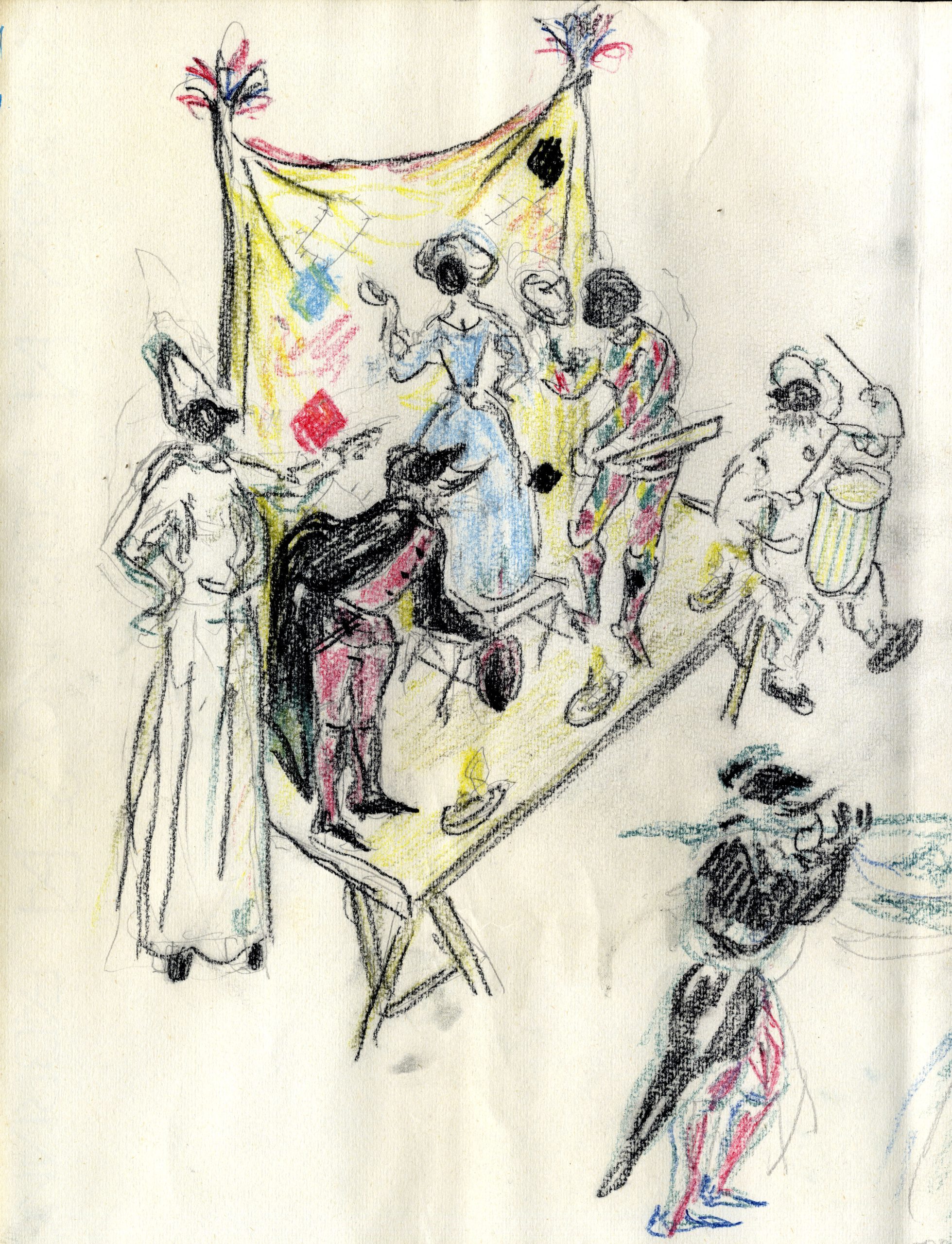
The Institute of Theatre and Opera has organised a public presentation to illustrate the donation of the Archive of Arnaldo Momo (Venice, 1916-2008), director and theatre scholar, in cooperation with the artist’s family. The presentation will be accompanied by a discussion on Momo’s role on the Venetian scene after the Second World War as well as comparisons with other leading figures, such as Giovanni Poli and Mischa Scandella (the Institute also holds their archives). During the meeting, Arnaldo Momo’s artistic career will be illustrated through a
selection of the material held by the Institute, which will be on public display for the occasion. In fact, a great variety of documents directly related to the theatrical activities of Momo and his actress wife Sara Tagliapietra (stage photographs, playbills, press reviews of their productions, etc.) are kept in the Archive, which also contains director’s notes, scripts, autograph notebooks and a rich library. The participants at the presentation will include Arnaldo Momo’s sons, Fabio and Federico, Drawing by Arnaldo Momo Carmelo Alberti, Maria Ida Biggi, Ilaria Crotti and Carlo Montanaro
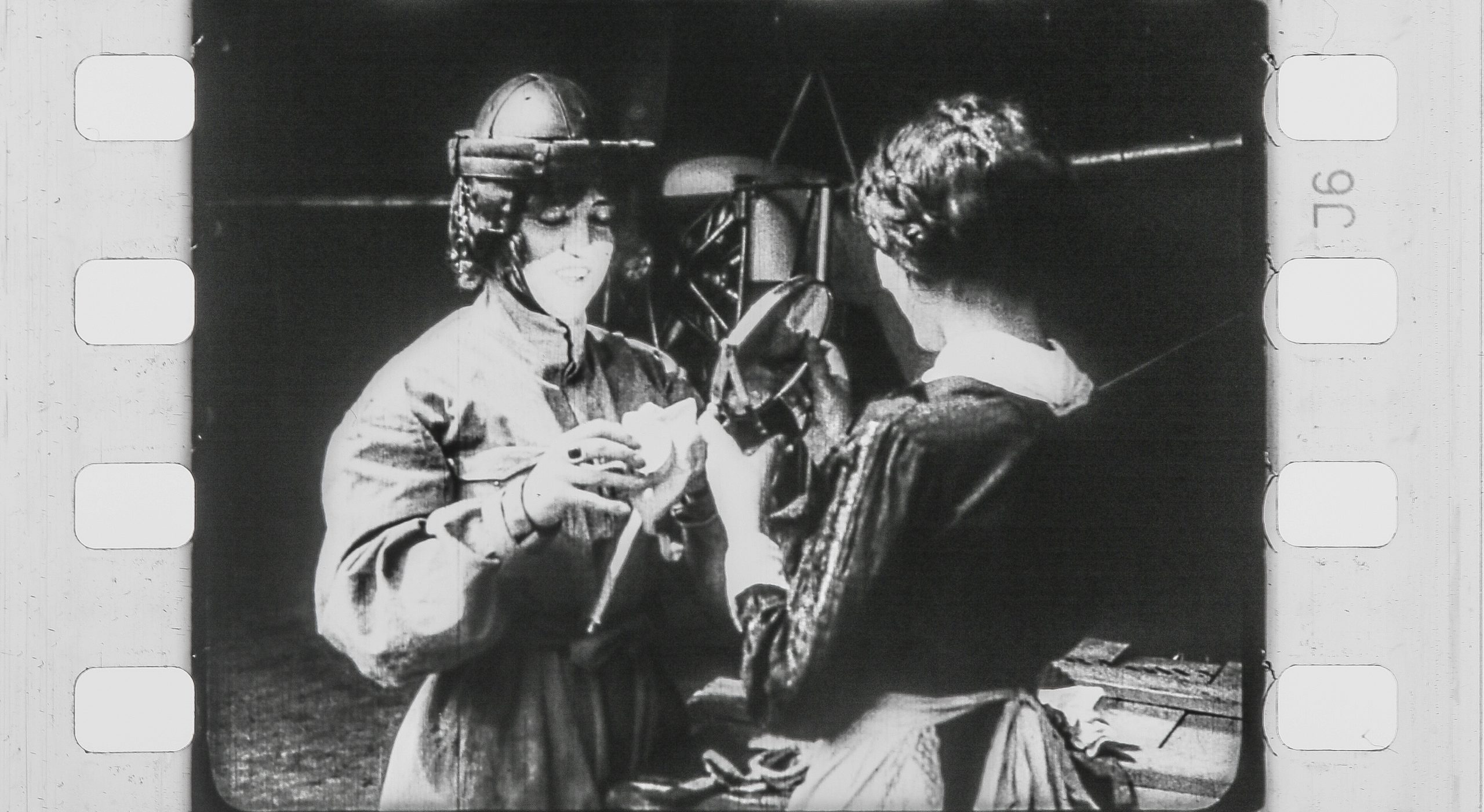
The Institute of Theatre and Opera has organised a study day on Lyda Borelli to mark the 60th anniversary year of her death (2 June 1959), and as part of a series of events generated by the revival of interest in the once renowned actress. In the 1920s, in fact, Lyda Borelli, already a star of the Italian and international stage, reached the peak of her celebrity after becoming a diva of the big screen. Following on from the exhibition in 2017, when Borelli’s most important films were shown, the Institute has continued to stage events aimed at rediscovering and re-assessing this fascinating actress, long forgotten by audiences and critics. Organised in collaboration with Ca’ Foscari University, Venice, the meeting will also include a showing of La memoria dell’altra, directed by Alberto Degli Abbati in 1913 and restored in 2017 by the Centro Sperimentale di Cinematografia, Rome, at the prompting of the Institute of Theatre and Opera. In this film with stunning external shots of Venice, Lyda Borelli plays an aviator called Lyda, an emancipated woman with a keen interest in flying and engines.


